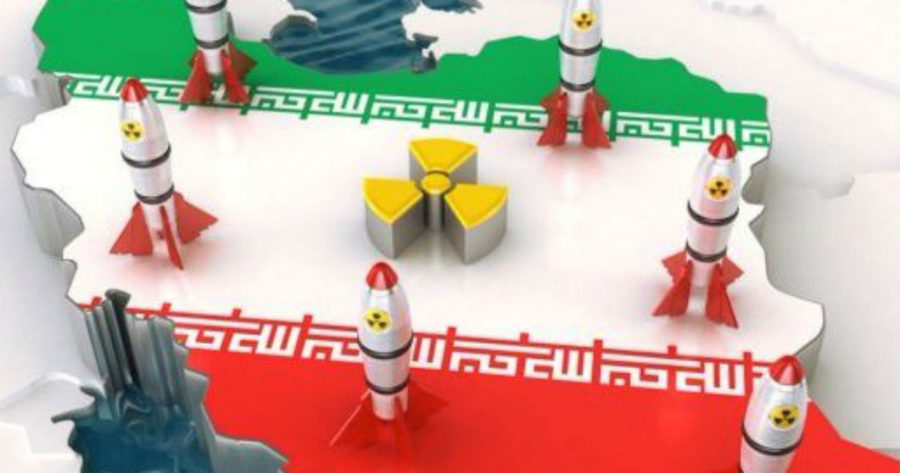
While negotiations between Tehran and the International Atomic Energy Agency represented by the Board of Governors are seemingly on the rise, as a result of the draft resolution prepared by the European Troika (France, Germany, and Britain), Washington has been pushing for the condemnation of Iran for its violation of the nuclear agreement and the treaty to limit the spread of weapons of mass destruction. This was a result of the most recent decision announced by Tehran to suspend the implementation of the surprise inspection protocol, limit the functions of the IAEA inspectors, and exceeding the agreed upon limits of uranium enrichment.
The Biden administration appears to be leaning towards de-escalation, as to not blow up the remaining bridges with the Iranian regime by giving the IAEA and its Director General Rafael Grossi the opportunity to build an agreement with the Rouhani’s government. The agreement stipulates a three-month deadline to approve on of two options: Either returning to cooperation in case the sanctions are lifted or heading towards more escalation that holds a significant possibility of withdrawal from the agreement and even suspending work on the nuclear proliferation program!
A US Withdrawal
The withdrawal of support by the United States for the Troika’s draft resolution, according to media leaks that assert that Washington has abandoned efforts in the direction and is advising its European allies to do so as well, reveals the existence of vigorous movements by the two parties, Iran and the West, that are paving the way for future negotiations which can establish serious cooperation moving forward, such as sitting on a negotiating table directly and tackling outstanding issues. Some issues go beyond the nuclear program, such as the missile program and regional influence. Solutions may be formed in a way that Washington does not have to withdraw from its stance, and Tehran doesn’t have to be forced to capitulate. The existing dialogue between the two parties, which has yet to rise to the level of being called a negotiation, is not meant to lead to collision. Current efforts to provide a three-month deadline for negotiations allows the US administration and its European allies time to await the post-elections environment in Iran, and the kind of party that will be seated across on that negotiation table after June 18th. Will they have the authority to make crucial decisions once all the files are presented?
The European Suggestion
Defusing the looming escalation that was expected following the European proposal to condemn Iranian actions by the board of governors of the IAEA, which was initiated by the United States, aimed at preserving a path towards a diplomatic dialogue with Tehran and preventing another escalatory step by them. This escalation by Tehran could severely complicate the process of reaching an agreement, and it would allow them to continue work without international oversight, even the limited oversight guaranteed by the treaty on the Limitation of Proliferation of Weapons of Mass Destruction. This prompted Washington, through its Secretary of State Anthony Blinken, to state that the negotiation period is a chance for Tehran to positively cooperate and abandon some of its positions and cooperate in clarifying the ambigiouties surrounding their enrichment levels. This Iranian cooperation may provide the ground for Washington to easing the imposed sanctions without lifting them completely, pending the conclusion of the main negotiation process between them.
Although Iran welcomed the American – European Agreement in the agency, a kind of frustration remained prevalent expressed by Iran’s rejection of the participation of Washington in the IAEA meeting as an unofficial member. This is not to say that Iran does not want the US to be a monitor, but mostly it fears that they would turn this position into a permanent one which would bring the US back to the table without having to offer any concessions that Tehran is demanding. In the forefront of these demands is the lifting of the sanctions initiated by the Former US President Donald J. Trump and his administration which were not in accordance with the Security Council Resolution 2231. The alternative is cancelling the sanctions by withdrawing from the agreement as a whole.
Pending the second visit of the Agency’s director, Grossi, to Iran in the beginning of next April, following up on the results of the understanding he reached with the Rouhani government on February 21, indications about breakthroughs on the issue of US sanctions have begun to appear clearly; particularly with regard to easing obstacles blocking Iran’s return to the oil market in order to sell its production globally. In addition, a solution for the frozen Iranian funds in foreign banks, especially South Korea, is approaching, and progress in agreements over certain broad headlines that establish joint efforts to end or solidify an understanding about exits to some crises or regional files.

